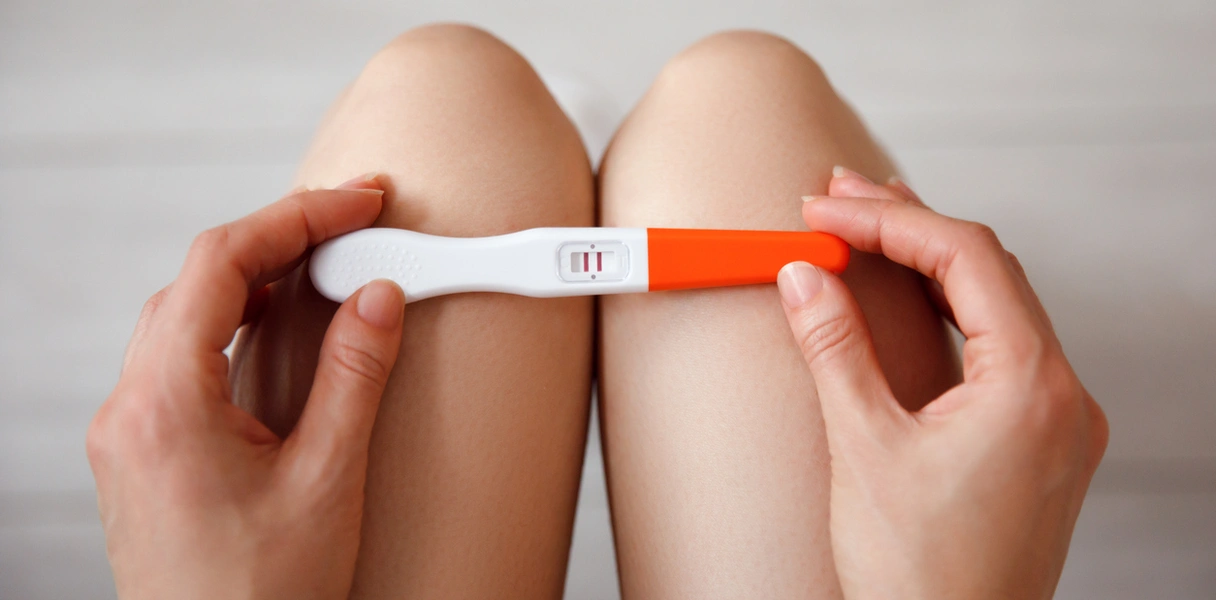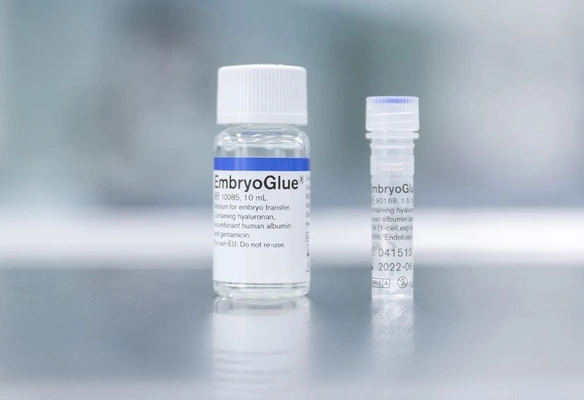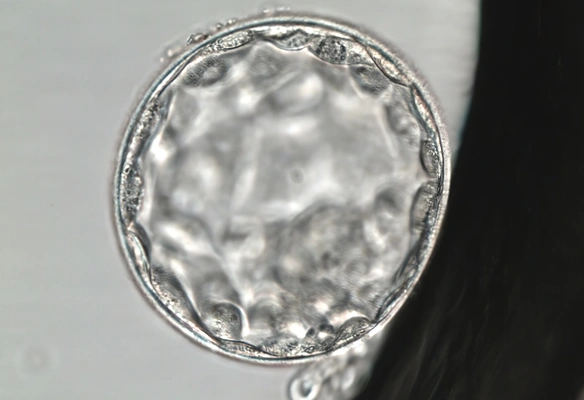They do not guarantee pregnancy, but they do increase the chances of successful implantation, especially in patients with a history of previous failures.
Embryo implantation support
Specialized techniques to promote embryo implantation

After fertilisation and embryo development, implantation in the uterus is one of the most delicate and decisive steps in fertility treatment. To increase the chances of success, we use specialised methods that optimise this crucial moment.
EmbryoGlue
EmbryoGlue is the only transfer medium with proven effectiveness in improving embryo implantation in the endometrium after transfer.It is a nutrient-rich culture medium formulated with a high concentration of hyaluronan, a substance that is also naturally present in the uterus.
Hyaluronan interacts with specific receptors on the surface of both the embryo and the endometrium, facilitating the adhesion of the embryo to the uterine wall – a key step in achieving pregnancy.
International studies have shown that the use of EmbryoGlue during embryo transfer can increase the clinical pregnancy rate from 41% to 49%, compared with conventional culture media.

Assisted hatching
Assisted hatching is a specialised laboratory technique that involves breaking or thinning the zona pellucida, the protective layer surrounding the embryo. This technique is particularly used in the following cases:- Before carrying out PGT (Preimplantation Genetic Testing)
- When the embryologist observes that the zona pellucida is too thick or rigid
- In patients with a history of implantation failure
This technique can improve implantation chances, especially in previous unsuccessful IVF cycles or in women of advanced age.

Frequently asked questions about support for embryo implantation
What is support for embryo implantation?
These are complementary techniques to in vitro fertilisation that improve the chances of the embryo attaching to the endometrium and initiating pregnancy. Among them, EmbryoGlue and assisted hatching are the most notable.
What is EmbryoGlue and how does it work?
EmbryoGlue is a transfer medium enriched with hyaluronan, a substance naturally present in the uterus. It facilitates embryo adhesion to the endometrium and can increase the clinical pregnancy rate compared with conventional media.
In which cases is the use of EmbryoGlue recommended?
It is especially recommended for women with previous implantation failures, of advanced maternal age, or when higher chances of success are sought in embryo transfer.
What is assisted hatching?
It is a laboratory technique in which the zona pellucida (the outer layer of the embryo) is thinned or carefully opened using a laser. This makes it easier for the embryo to break free and attach to the endometrium.
When is assisted hatching recommended?
It is indicated in patients with repeated implantation failures, in women of advanced age, when the embryo’s zona pellucida is too thick, or before performing preimplantation genetic testing (PGT).
Are these techniques safe for the embryo?
Yes. Both EmbryoGlue and assisted hatching are safe procedures, carried out under strict laboratory protocols, and they do not negatively affect embryo development.